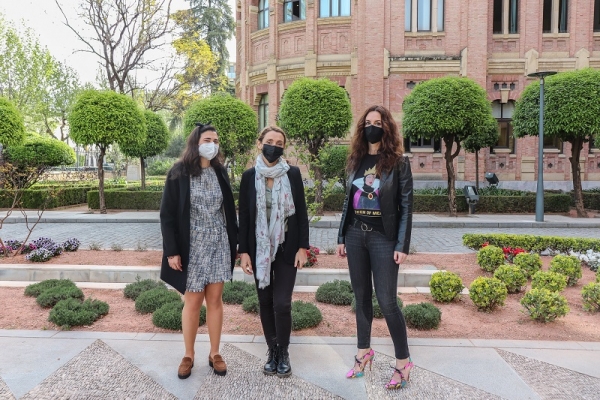The dropout rate among people with learning disabilities increases at the Higher Education level. Dyslexia stands out, in this regard, which is not only a specific learning disorder that causes difficulties, but also a hurdle that students face, causing psychological problems such as depression and anxiety, and often leading to isolation from their classmates. It is against this backdrop that VRAILEXIA arose, a European project focused on the search for tools that alleviate this situation and raise the quality of learning for these students.
VRAILEXIA, which obtained the highest score in the ERASMUS + KA203 call, aims to provide help and support to Higher Education students with dyslexia through a digital platform - BE SEPECIAL - which combines Artificial Intelligence and Virtual Reality. The European project is spearheaded by the University of Tuscia (Italy), and features participation by the University of Cordoba, charged with developing the project's Virtual Reality component.
VRAILEXIA will use Artificial Intelligence to develop algorithms based on a European bank with data on diagnoses, tests and psychological evaluations of university students with dyslexia. These algorithms will allow for the development of new learning strategies, materials and teacher training.
The coordinator of the group at the UCO, Sara Pinzi, and the researchers on the same team, María Dolores Redel and Pilar Aparicio, stress the lack of data on dyslexic people at universities compared to other stages of scholastic life, such the as the Primary and Secondary levels. Along this line, VRAILEXIA gathers this information through a questionnaire in order to detect the systems that those students who manage to reach university have used; and, a posteriori, have them describe it so that it can be integrated into the AI algorithm.
The project also has a training component focused on students, to improve their creativity and entrepreneurial mentality (TOC, Training of Creativity); and another for teachers, increasing their awareness of dyslexia (TOT, Training of Trainers). One of the training activities focused on students is In the Shoes of Dyslexics Students, initiated by the team researcher Pilar Aparicio, whose purpose is to allow classmates to appreciate the difficulties that they face in a real learning situation, such as reading a text.
Thanks to the opportunity to participate in a European project, the research group was able to take a leap towards internationalization and present its work. They agree that it is proving to be an interesting challenge, given that, as a result of the pandemic, people have gained a new appreciation for the importance of the virtualization of content, especially the work of virtual laboratories to facilitate social inclusion.
In order to participate in this study, one can fill out the following questionnaire if they meet the following requirements: be a student with dyslexia problems in high school, university, or advanced vocational training.
Questionnaire:https://docs.google.com/forms/d/e/1FAIpQLSdkI8K2ux1iwt2zgBc5Lgcd6PwhLH_0-dGEolU6E1Vhf0X5pg/viewform?hl=es
More information in: https://vrailexia.eu/es/
The VRAILEXIA project - “Partnering Outside the Box: Digital and Artificial Intelligence Integrated Tools to Support Higher Education Students with Dyslexia” (2020-1-IT02-KA203-080006) is co-financed by the European Union through the ERASMUS+ call. The content of this report is the exclusive responsibility of the University of Córdoba, and neither the European Commission nor the Spanish Service for the Internationalization of Education (SEPIE) are responsible for the use to which the information published here may be put.
"This report is part of the project “CONSOLIDA-UCO ECT2020-000810", funded by MCIN/AEI/10.13039/501100011033 and by European Union “Next Generation EU”/PRTR”.


